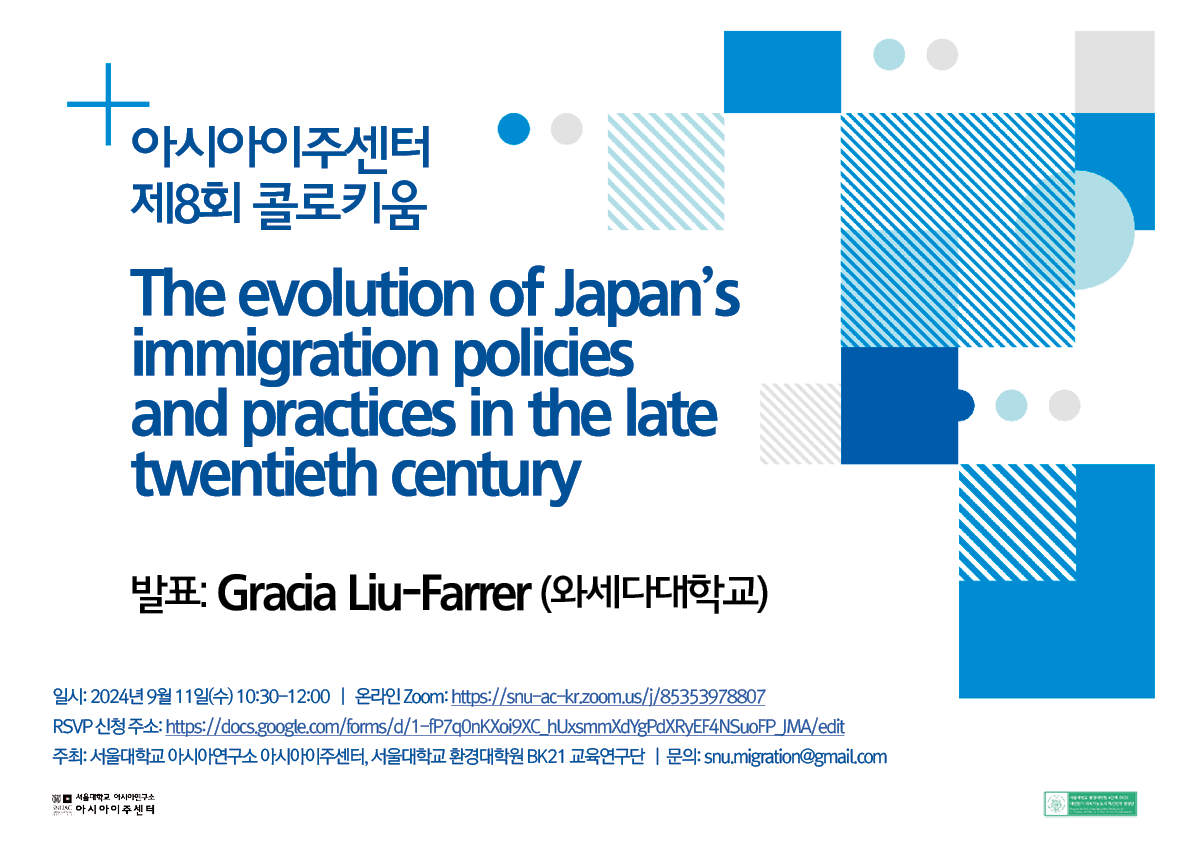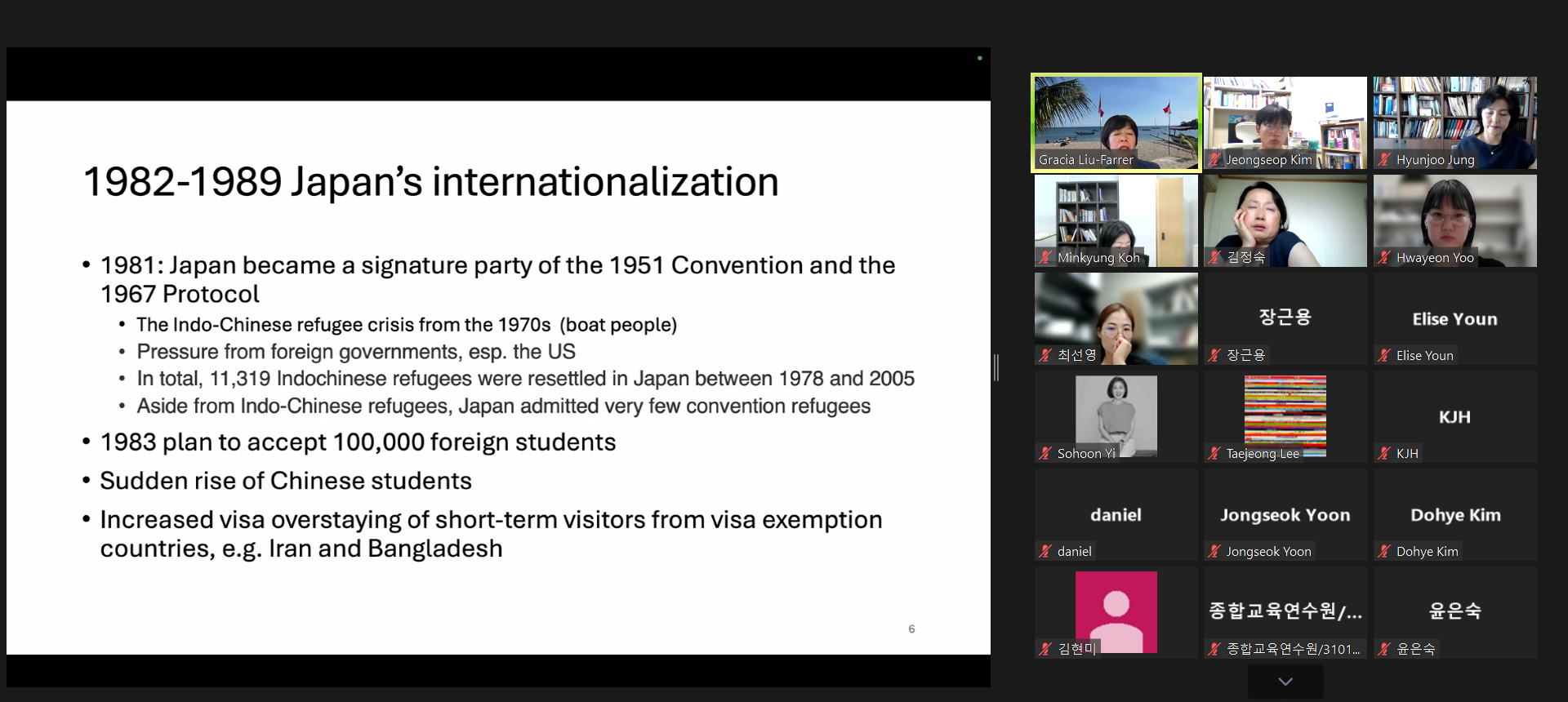
This presentation discusses the contemporary history of Japan’s evolution into a significant hub for migrants from within as well as outside Asia in the latter half of the twentieth century. It analyzes major transformations in Japan’s migration policy and practices during the post-war period and how Japan’s ethnonationalist national identity, its rise as a strong economy and pop cultural producer, and the concurrent unfolding of a demographic crise shaped the distinct and often contradictory characteristics of Japan as a contemporary migration destination in the late 20th century. It argues that while resisting the concept of immigration, Japan has also been attractive as a hub for educational, economic and cultural migrants from across the world.
Photos

Review
9월 11일 오전 10시 30분부터 “The evolution of Japan’s immigration policies and practices in the late twentieth century”라는 주제로 와세다대학교의 Gracia Liu-Farrer를 초청해 콜로키움을 개최했다. Gracia Liu-Farrer는 아시아태평양 연구 대학원 사회학과 교수이자, 와세다대학교 아시아 이주 연구소 소장을 역임 중이다. 일본 내 이주민의 경제적, 사회적, 정치적 활동을 주로 연구하고 있고, 전 세계 유학생과 전문 인력의 이주 양상 연구를 진행하고 있다.
본 콜로키움에서는 일본의 이민정책 변화와 관련된 역사적 배경과 앞으로의 과제에 대해 두 틀로 나누어 진행했다. 우선, 일본이 제2차 세계대전 이후 어떻게 민족 중심의 국가에서 국제화와 이민정책을 수용하는 방향으로 변화해 왔는지 설명했다. 특히 1950년대 이후의 정책 변화와 이민자 증가 현상을 다양한 그래프를 통해 제시했으며, 한국, 중국, 브라질 등 일본 내 주요 이민 유입 국가 이주민들의 영향력을 논의했다.
한편, 인구 소멸 위기 현상이 나타난 20세기 후반의 일본은 이민·이주에 저항하면서도 세계적으로 교육적, 경제적, 문화적으로 가치가 있어 이주민에게 모순적인 정체성을 가지고 있다는 것을 밝혔다. 본 강연은 일본의 고령화와 저출산으로 인한 노동력 부족과 같은 현 상황 속에 이민과 관련된 정책적 고찰과 경제적, 사회적 요구 사이에서 일본이 어떻게 변모하고 있는지에 대한 방향을 제시함으로써 청중들에게도 이민 및 관련 담론에 관한 도전과제를 제시하며 마무리했다.


